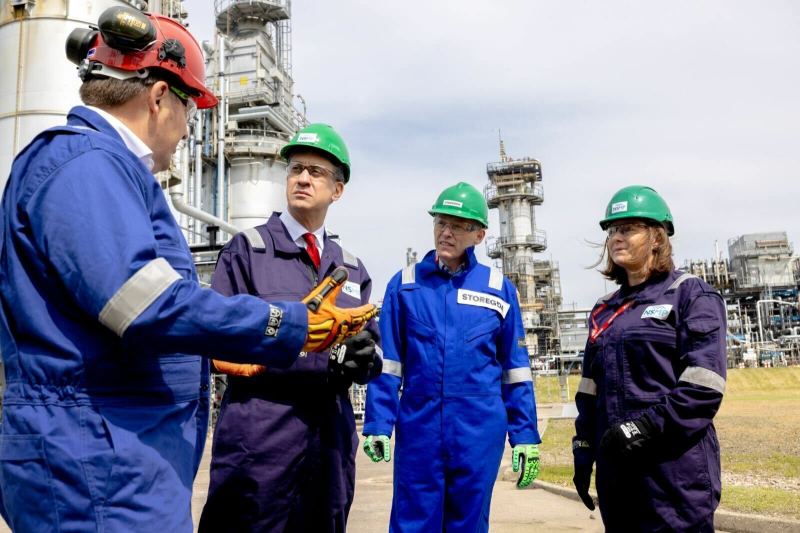The UK government has announced a £200 million investment in the Acorn carbon capture and storage (CCS) project in St Fergus, Scotland, marking a major step forward in its strategy to reach net-zero greenhouse gas emissions by 2050.
The investment, unveiled during a government spending review, reinforces the UK’s backing of carbon capture as a pillar of its clean energy strategy. The Acorn project – a joint venture by Storegga, Shell UK, Harbour Energy, and North Sea Midstream Partners – is designed to capture CO2 emissions from heavy industry and transport them offshore via repurposed pipelines to permanent geological storage 2.5 km beneath the North Sea.
“This vital support will enable the critical work needed to reach Final Investment Decision (FID) and marks a major step forward – not only for Acorn, but for the development of Scotland’s CCS infrastructure and the growth of a UK-wide carbon capture and storage industry,” said Tim Stedman, CEO of Storegga.
The UK also confirmed support for the Viking CCS project in the Humber region, though specific funding details have not been disclosed. Once operational, Acorn and Viking are expected to remove up to 18 million tonnes of CO2 annually, equivalent to the emissions of over 4 million cars. Both projects form a central part of the UK’s broader CCS strategy, which includes £9.4 billion pledged for CCS over the current spending review period, and £21.7 billion earmarked for the next 25 years.
CCS technology is seen as critical for decarbonising hard-to-abate sectors such as cement, chemicals, and heavy manufacturing – industries where emissions are difficult to eliminate through electrification or fuel switching alone.
Secretary of State for Energy Security and Net Zero, Ed Miliband MP, described the investment as both an environmental and economic opportunity: “This will support industrial renewal in Scotland with thousands of highly-skilled jobs at good wages to build Britain’s clean energy future. Carbon capture will make working people in Britain’s hard-working communities better off, breathing new life into their towns and cities and reindustrialising the country through our Plan for Change.”
Nic Braley, General Manager, Acorn, commented: “The government has a vital role to play in the success of this project and we will continue to work closely with them to discuss the detail of this announcement and how we proceed. We look forward to developing the next phase of the project which will require both short-term and sustained long-term commitment from government to enable FID.”
“Acorn will support economic growth, create and safeguard tens of thousands of jobs and deliver the much-needed CCS infrastructure to support a successful energy transition for our communities,” added Braley.
Photo credit: Acorn

